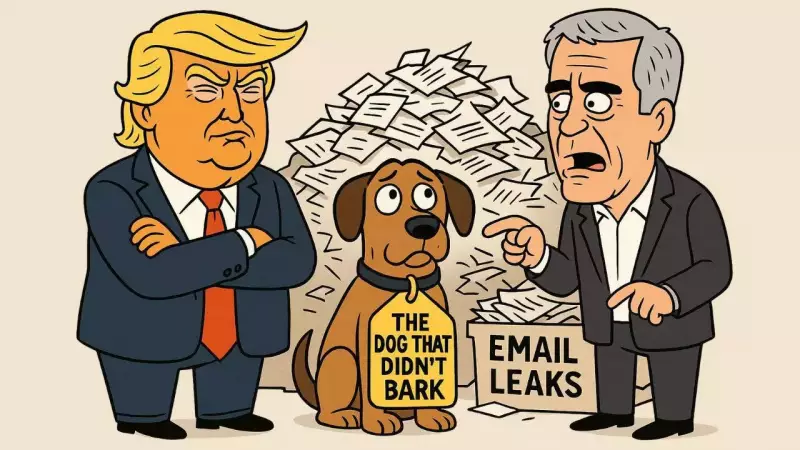
In a dramatic political maneuver that backfired spectacularly, House Democrats attempted to use Jeffrey Epstein's emails to implicate former President Donald Trump in the infamous sex trafficking case. The strategy, which relied on selective release of correspondence, ultimately revealed more about political theater than presidential wrongdoing.
The Three Emails That Started the Fire
On November 12, 2025, Democrats on the House Oversight Committee released three carefully chosen emails from Epstein's estate. They claimed these messages raised serious questions about Trump's involvement with Epstein's abuse network. The most explosive was a 2011 email where Epstein told Ghislaine Maxwell: "I want you to realise that that dog that hasn't barked is Trump."
The Democratic interpretation suggested Trump had spent time with one of Epstein's victims and his silence was suspicious. A second email from 2019 had Epstein claiming Trump "knew about the girls" and asked Maxwell to stop. The third, from 2015, showed Epstein and author Michael Wolff discussing how Trump might handle questions about Epstein on CNN.
Republicans Unleash the Document Flood
The Democratic strategy collapsed within hours when House Republicans responded with overwhelming force. They released over 20,000 pages from Epstein's estate, providing full context to the selectively quoted emails. The unredacted version revealed the unnamed victim was Virginia Giuffre, who had consistently stated Trump never acted inappropriately with her.
The massive document dump included numerous mentions of Trump, but these were social references, birthday notes, and gossip—not criminal allegations. One email joked about photos of "Donald and girls in bikinis in my kitchen," while another referenced Epstein supposedly giving Trump a 20-year-old girlfriend as a gift in 1993. While socially uncomfortable, none constituted criminal evidence.
What the Emails Actually Revealed
Critical analysis of the complete email record shows striking absences. The correspondence contains no dates, flights, payments, or trafficking logistics involving Trump. There are no messages between Maxwell, pilots, or staff that implicate Trump in criminal activity. The tone throughout is conversational and speculative rather than evidentiary.
Under standard investigative thresholds, the emails lack every necessary component for a credible case: no victim allegations, no corroboration, no documentation, and no third-party confirmation. Both SDNY and DOJ investigations into Epstein reviewed Trump's connections to the network and found nothing warranting prosecution.
The Political Aftermath and Media Role
The episode exposed the dangerous game of using trauma survivors as political weapons. Virginia Giuffre had repeatedly stated Trump never harmed her, yet her name was dragged back into political battles after her death. Several Republican congresswomen who are assault survivors demanded transparent release of all Epstein material rather than curated fragments.
Media amplification played its predictable role, with headlines and social media posts spreading the initial insinuations faster than context could catch up. The follow-up corrections reached only a fraction of the original audience, demonstrating how political innuendo consistently outpaces nuance in modern politics.
The Democratic effort to damage Trump ultimately failed, with the White House dismissing the emails as meaningless gossip and Trump labeling it another hoax. However, the episode highlighted how Epstein's shadow continues to haunt American politics, even when evidence remains absent.





